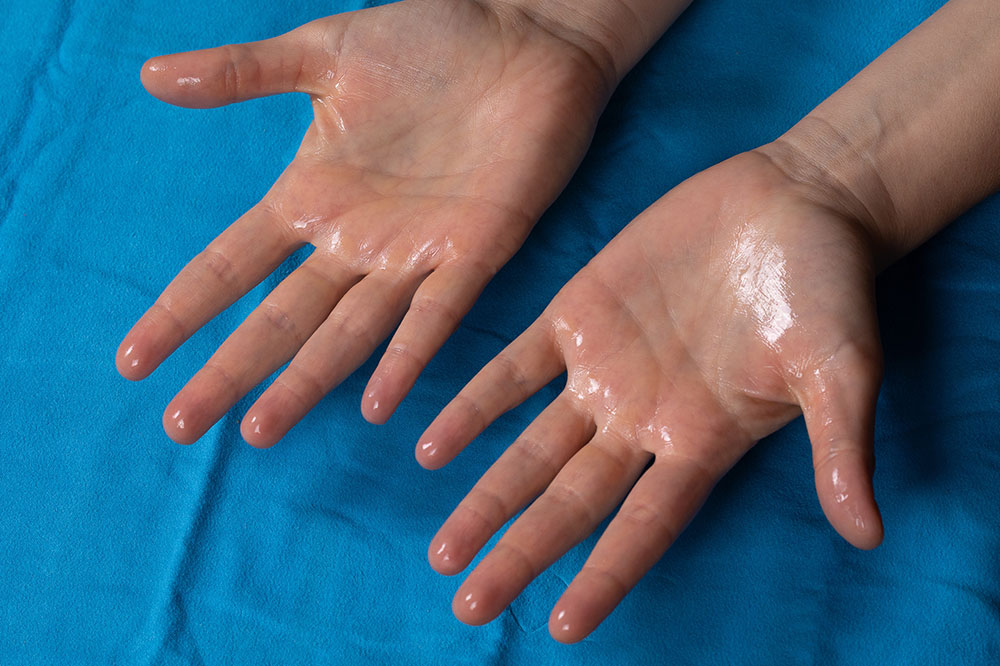
Tips for Sleeping Better with Hyperhidrosis
Hyperhidrosis is a difficult condition for many reasons, but the biggest of them is that the excessive sweating doesn’t stop even at night. This affects one’ nighttime routine, which, consequently makes them feel fatigued during the day. In this article, we’ve detailed a few useful tips that can help patients suffering from hyperhidrosis sleep well at night.
Tips for sleeping well with hyperhidrosis
1. Try to not stress about something right before going to bed
It is common knowledge that stress causes sweating. This occurs because the sweat glands are activated by nerves, which are sensitive to emotions, hormones, and other stressors. When we feel stressed, our body temperature rises and that triggers the sweat glands. Try to avoid thinking about stressful topics, especially if you’re suffering from hyperhidrosis and experience night sweating. Stress will only increase sweating, preventing you from enjoying a good night’s sleep. One way to reduce stress before going to bed is to choose relaxing activities, such as reading or bathing. Also, avoid checking your phone as it will only make you anxious.
2. Empty your mind when before sleeping
Believe it or not, but your thoughts will have a say in how you’re going to sweat at night. Thoughts are linked to nerves, which as you’ve already seen, can trigger the sweat glands to produce more sweat. So if you’re suffering from hyperhidrosis, ensure that you have a clear mind before you go to mind. Irrespective of whether you had a good or bad day, try to not think about it and, instead, focus all your energy into relaxing yourself.
3. Comfortable clothing is key
Hyperhidrosis is such a distracting condition that you might forget to pay attention to your clothing. However, it is imperative that you do, as the right clothes can help you sleep better. Choose comfort over looking fancy. For sweat-free sleep, give up pajamas that are made of polyester and other synthetic materials. This is because such materials are not good at absorbing sweat. Pajamas made from natural materials like light cotton work well, while silk can also help reduce or at least limit nighttime sweating. Also, avoid wearing socks unless absolutely necessary, as they can increase your chances of sweating.
4. Change your bedding
You’re not always at fault for sweating at night. Sometimes, it is your bedding. Sheets and blankets made from anything other than cotton aren’t breathable enough, which promotes sweating. So ensure that your bedding is breathable and made from cotton. Additionally, buy pillows that are made from gel. Their cooling effect will give you a pleasant feel and prevent nighttime sweating.
5. Check medication options
Different kinds of medications can prevent excessive sweating at night. Consult your doctor and check if you can safely use them to counter nighttime sweating. Prescription antiperspirants, Botox injections, and nerve blockers are used for this purpose, and they help control excessive sweating under the armpits, feet, and other areas of the body.



